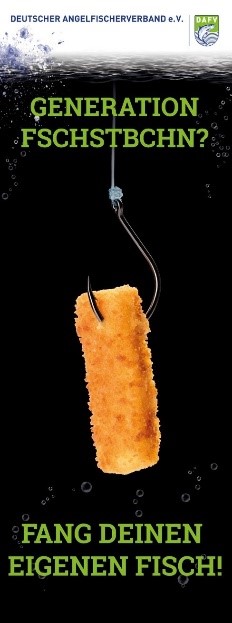Angling is more than putting a line in the water. That’s what Deutscher Angelfischerverband (DAFV), the German EAA member is saying out loud with its new campaign “Angling in the midst of our society”. 6.24 million Germans go fishing at least once a year, which equals 7% of the country’s population. The recreational fisheries sector in Germany also generates an economic turnover of more than €5 billion per year. As important but not monetised, angling provides social and environmental benefits that should not be overlooked.

Contrary to what is sometimes argued by conservationist groups, angling is compatible with environmental conservation and protection objectives.
Anglers’ associations are also recognised as nature conservation associations. The associations gather hundreds of thousands of volunteers across Europe, working for water conservation, restoration of spawning grounds, cleaning river banks and beaches and very often, cooperating with scientists - as shown in our recent article about the
Tuna tagging projects in Sweden and Denmark . Angling as a leisure activity is reliant on sustainable practices. Angling is highly selective way to catch fish, thanks to a wide range of tackle and techniques best suited to various fish species and fishing grounds. Angling caught fish can be released, e.g. undersized fish, with a high survival rate.

The DAFV campaign stresses that angling is indeed per definition a leisure activity, but so much more than that. Angling clubs and associations play a key role in our modern society challenged by urbanisation, digitalisation and individualisation. Angling is an activity through which young generations can become engaged in biodiversity conservation and reconnect with older generations. Angling clubs provide a place for environmental education and for social cohesion, especially in rural areas.
Read more about the campaign and its objectives:click here